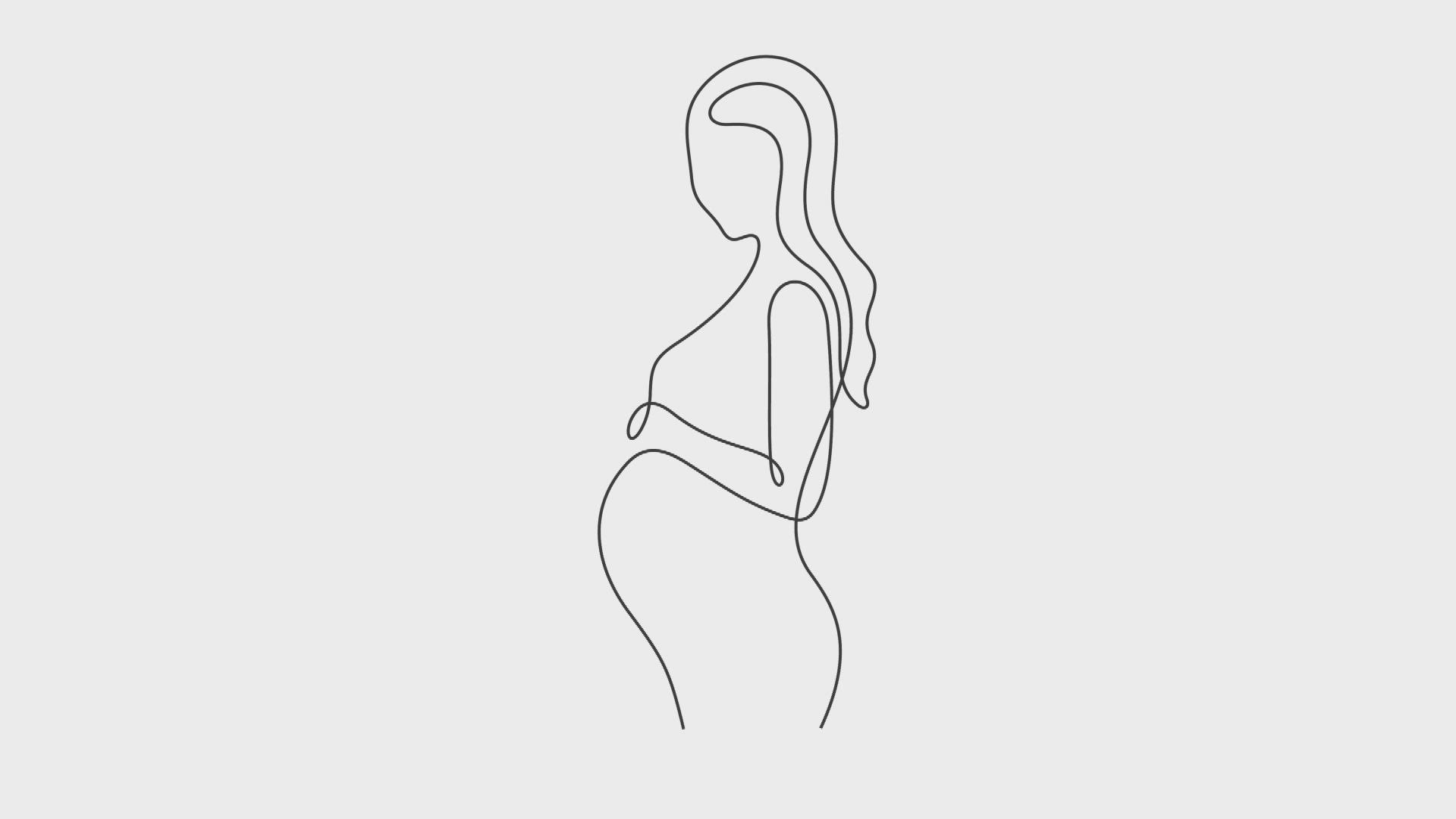TAMPA, Fla. — As America confronts its divisions along racial lines, 10 Tampa Bay's “Fractured” series will explore the words of the Rev. Dr. Martin Luther King Jr.’s 1967 “The Other America” speech.
Each story will examine a topic he covered and will look forward to solutions to heal the country’s fractures.
"In a sense, the greatest tragedy of this other America is what it does to little children." - Martin Luther King Jr., "The Other America," 1967.
Though a laptop, Ralph and Valerie Moore of Tampa shared stories you don't usually tell a stranger. Yet, even with the weight of two of the biggest tragedies in their lives, the Moores graciously opened the door into some of the darkest moments of their lives.
For years, the Moores tried to have a child of their own to add to the children they had from previous relationships. And when Valerie Moore found out she was pregnant, they eagerly began making room for the pitter-patter of Baby Brianna’s footsteps.
"This is now our second child that we've tried to have,” said Ralph.
Samuel was the first. So, in 2012, Brianna was a seed of hope. That’s until tragedy struck.
"They told me, 'your pressure's up really, really high.' And that was a shock for me because I had an appointment with my doctor the day before and he never mentioned anything of high blood pressure,” said Valerie.
She was nine months pregnant.
“They had told me the heart stopped,” she said.
Valerie still had to go through labor, and as they held their lifeless child, their hopes, their dreams were destroyed.
Research shows Black women are twice as likely as white or Hispanic women to have stillbirths.
"Other issues, whether they'd be nutritional, whether that be transportation issues, whether they be access to care. These are all factors that we refer to as the social determinants,” said Dr. Haywood Brown, professor of obstetrics and gynecology at USF Health.
Dr. Brown is an expert on infant mortality and stillbirths, and the disparities that drive them.
"Other issues, whether they'd be nutritional, whether that be transportation issues, whether they be access to care. These are all factors that we refer to as the social determinants,” said Dr. Brown.
According to Health.gov, social determinants refer to how your surroundings impact your health when it comes to financial stability, where you live and the quality of your neighborhood, education, quality health care, and social/community support.
Research shows years of racism and discrimination drives disparities in social determinants for Black women. So, as Valerie learned, it wasn't just about what was happening in her body, but what was happening outside of it as well.
"We went through some stressors,” said Valerie.
Stressors for the Moores included trying to make it in a tougher neighborhood in Tampa. A stolen car. Loss of income for Valerie. Additionally, while Ralph works in education—with other kids, money was tight--leaving Medicaid as Valerie’s only healthy option.
“They don't tell you that you're not going to get the best of care. You know you're not going to get x-rays all the time or sonograms all the time or you know, doctors that'll just check in on you,” said Valerie.
Florida is one of just a few states that has refused more billions in federal dollars to expand Medicaid for low-income families. It's become a political battle leaving mothers like Valerie caught in the middle.
"I had so many things running through my mind...why do I have to go through this?" asked Valerie.
Yet, Valerie's loss is a community lesson.
"We need to look at policies that are frankly disenfranchising and stop blaming the victim,” said Dr. Brown. “What's at risk is the fact that you will have children that are dying before their first year of life that do not have the opportunity to contribute."
Opportunities so children can survive and thrive.
"This is a hurting situation. It's a very hurting situation."
"As we look at this other America, we see it as an arena of blasted hopes and shattered dreams." - Martin Luther King Jr., "The Other America," 1967.

